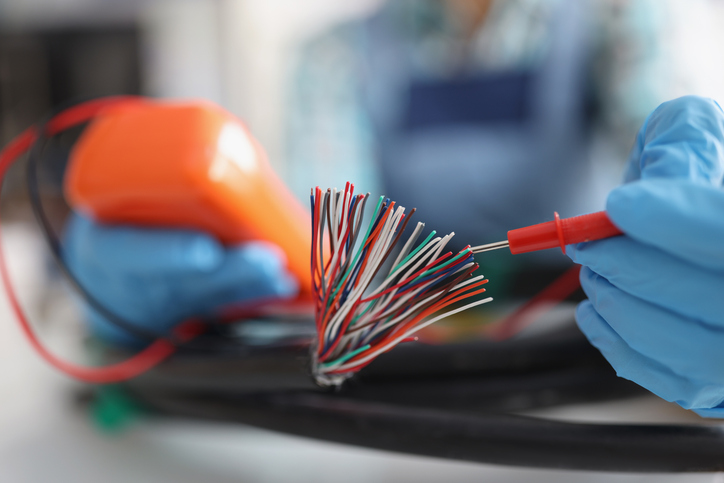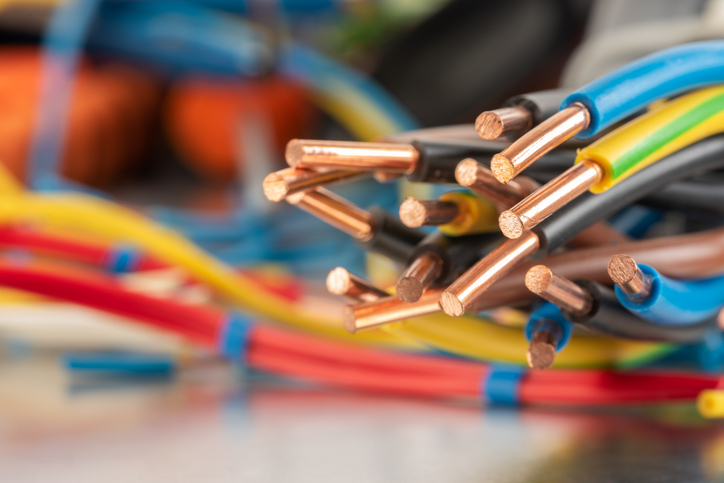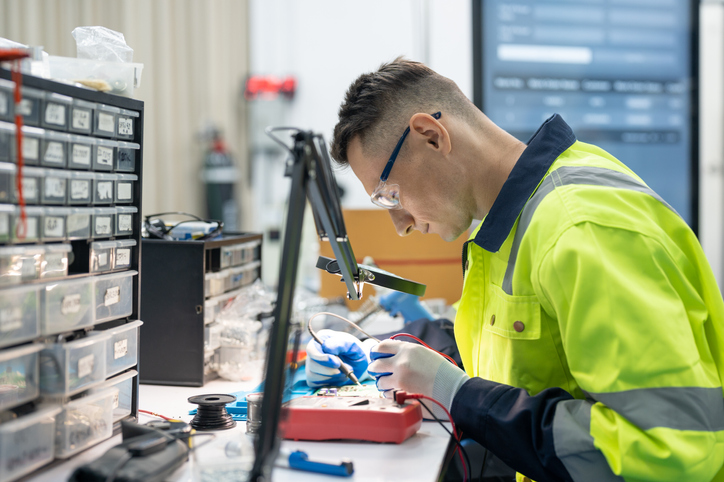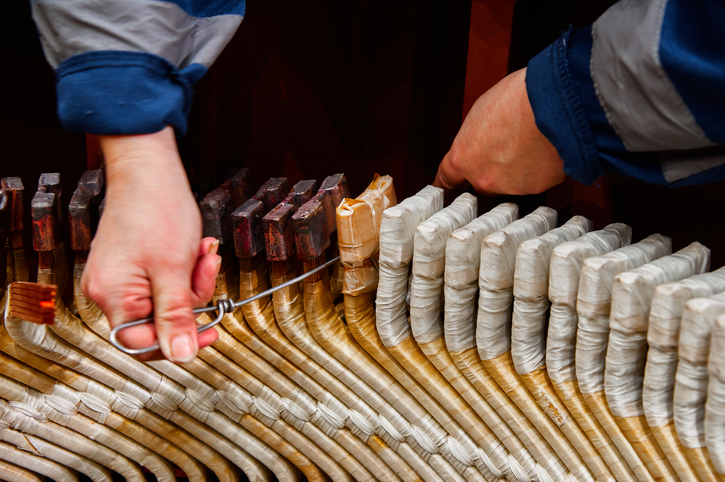Cable insulation tests are used to determine the various properties of your insulation materials. These processes use specialized lab equipment so you get the most accurate results possible. So, what is a cable insulation test and why are they important? Let’s dive in.
Types of Cable Insulation Tests
Analytical Testing
This insulation testing method is used to identify, examine, evaluate, and compare insulation materials for your applications. Analytical testing assesses the chemical, electrical, mechanical, and thermal properties of insulation materials to determine which will work best for your application.
Multiple types of analytical tests are typically done with a variety of tools and metrics, including:
- Differential Scanning Calorimeter: measures temperatures and heat flow associated with thermal transitions in materials
- Dynamic Mechanical Analyzer: applies stress to a material to determine its resulting strain or stress response
- Fourier Transform Infrared Spectroscopy: uses infrared light to identify materials
- MTS Tensile: used to determine the amount of tensile, torsion, compression, and flexure a material can withstand
- Gurely Densometer: measures the porosity of materials to determine how much gas and liquid can pass through
- Gurely Bending Resistance Tester: tests the stiffness of your insulation material and the amount of bending they can withstand
- Contact Angle Meter: measures the wettability of a material by applying drops of various liquids to the material
- Muffle Furnace: used to determine the percentage of inorganic material in an insulation material
High-Voltage Testing
High-voltage testing helps develop insulation systems. They test for dissipation factor, voltage endurance, voltage breakdown, and partial discharge. Many tests are done during high-voltage testing, including:
- Hipotronics Hipot Tester: tests the dielectric strength of the insulation to ground, determining whether the ground wall can handle an over-voltage situation
- Megohm Bridge: measures the resistance of a material by sending a high-voltage signal into the material
- Capacitance Bridge: used to identify an unknown or unlabeled capacitor
- Dissipation Factor Testing: electrical test that defines the condition of an insulating material
Why Are Cable Insulation Tests Important?
Cable insulation testing is crucial to ensuring that your cables and wires are safe and will function efficiently. These tests can help prevent shock, short circuits, and other dangerous outcomes by determining which solution is best for your application. Whether it is testing your current insulation to make sure it functions as you expect or if you are looking for a way to design and create an insulation solution for your needs, cable insulation testing is an important part of your cable insulation project.
Electrolock Has the Expertise and Equipment Needed to Perform All of Your Cable Insulation Tests
Since 1957 Electrolock has been engineering insulation solutions for high-voltage electrical, cables, batteries, and more. Part of our services include analytical and high-voltage testing for your insulation materials. This ensures that we are designing the right insulator for your needs to function efficiently and safely.
In addition to our extensive testing services, we also engineer and manufacture insulation solutions to fit all of your specifications. Our team will consider the application and environment of your products, as well as any other crucial information, and design the insulation material that checks all of your boxes. From battery insulation to high-temperature wire and cable insulation to high-voltage insulation, we have everything you need.
Contact our team today to get started.




